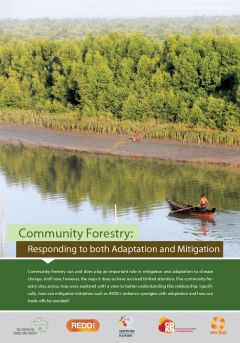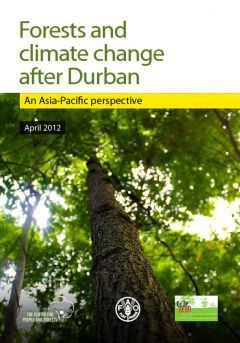Location
RECOFTC
RECOFTC is derived from an abbreviated form of the organization's legal name, Regional Community Forestry Training Center for Asia and the Pacific. Formerly the organization was known as RECOFTC – The Center for People and Forests.
RECOFTC – The Center for People and Forests is an international not-for-profit organization that focuses on capacity building for community forestry in the Asia Pacific region. It advocates for the increased involvement of local communities living in and around forests - some 450 million people in Asia-Pacific - in the equitable and ecologically sustainable management of forest landscapes.
The Regional Community Forestry Training Center for Asia and the Pacific (RECOFTC) opened in Bangkok, Thailand, in March 1987 with support from the United Nations Food and Agriculture Organization, the Government of Switzerland (through the Asian Development Bank), and Thailand's Kasetsart University.
Community forestry is widely acknowledged as a powerful solution for many of the challenges facing local people and the wider society, especially in improving rural livelihoods, enhancing community governance and empowerment, transforming forest-related conflict, protecting and enhancing the environment, and helping to fight climate change. As a capacity-building organisation, RECOFTC improves the ability of people and organisations to conduct community forestry effectively and sustainably.
RECOFTC works toward its mission through four thematic areas:
- expanding community forestry
- people, forests and climate change
- transforming forest conflict
- securing local livelihoods.
Members:
Resources
Displaying 311 - 315 of 485Community Forestry: Responding to both Adaptation and Mitigation
Many countries in the region are developing or revising their national climate chage adaptation strategies and it is critical that forest use by communities be considered and included within these plans. At the same time, mitigation activities such as REDD+ have rarely explicitly considered adaptation or the need to develop adaptive capacity (FAO, 2012). This means that valuable opportunities are being missed to ‘couple up’ activities with a goal to achieving results in both areas.
Climate Change, REDD+ and Our Role
Since few years the climate temperature is constantly rising up due to high emission of Green House Gases (GHG's) which is one of the main reason for climate change. Nepal is a small country which has little or no influence in causing climate change, however because of its weak economy, complex landscape, sensitive biodiversity, uneducated and vulnerable people in Nepal makes it less equipped to fight the consequences of climate change thus make them highly vulnerable.
Conflict Mediation in Asia's Increasingly Pressured Forests: A Tool for Getting the Positives out of Conflicts
Conflict over forest resources is one of the major challenges in forest management. Researchers have observed that the number and severity of forest conflicts in Asia has increased over time, and that forest conflicts are now widespread across the region. In Cambodia in 2009, 236 community-outsider conflicts were recorded. In Indonesia, 359 incidents of forest-related community-outsider conflict were identified between 1997 and 2003, with numbers increasing over time. This high concentration of forest conflict makes Southeast Asia one of the ‘hotspots’ of forest conflict in the world.
The Value of Cultural Theory for Participatory Processes in Natural Resource Management
While participation is seen as an important part of sustainable natural resource management, it is not always successful – a number of studies to date indicate conflicting values and power inequalities can significantly undermine participatory processes. A new paper in the Journal of Forest Policy and Economics examines another source of conflict: differing views of reality and underlying cultural biases.
Forests and Climate Change After Durban: An Asia-Pacific Perspective
Over the past two years, the Food and Agriculture Organization of the United Nations (FAO) and RECOFTC – The Center for People and Forests have brought together regional experts to reflect on the outcomes of the 15th and 16th Conference of the Parties (COP) to the United Nations Framework Convention on Climate Change (UNFCCC).






